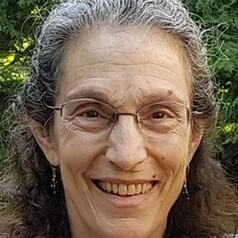
Elizabeth Aries
Professor of Psychology, Amherst College
I received my Ph.D. in social psychology from Harvard University in 1973. I joined the faculty at Amherst College in 1975 where I am currently the Clarence Francis (1910) Professor in Social Sciences (Psychology). For my first 20 years at Amherst College, my research interests focused on gender and communication. I authored Men and Women in Interaction: Reconsidering the Differences (Oxford University Press, 1996). My research interests shifted to issues of race and class. I carried out 12-year interview study of affluent Black, affluent white, lower-income Black, and lower-income white students of Amherst College looking at the challenges they faced on campus due to their race and class and what they learned from the race and class diversity in the student body. I completed two books about their college experiences and learning: Race and Class Matters at an Elite College (Temple University Press, 2008) and Speaking of Race and Class: The Student Experience at an Elite College (Temple University Press, 2013). I did follow-up interviews with the participants at age 30 examining participants' reflections on what they learned from exposure to race and class diversity during college and how that learning has impacted their lives. My new book, The Impact of College Diversity: Struggles and Successes at Age 30 will be published by Temple University Press in April, 2023.
Less ![]()
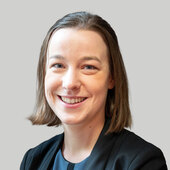
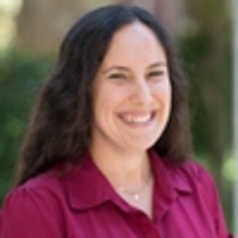
Elizabeth Besha
Dr. Elizabeth Basha, a graduate of both Pacific and MIT, joined the Pacific faculty in Fall 2010. Professor Basha recently received a National Science Foundation (NSF) award for a project in collaboration with the University of Nebraska, Lincoln. The three-year grant will investigate the use of aerial robotics to wirelessly transfer power to maintain sensor network systems. This project builds the power transfer system, develops algorithms for selecting nodes to recharge on both the UAV and sensor network side, and extends power management solutions on the sensor networks.UAV - Bridge
This research introduces novel recharging systems and algorithms to supplement existing systems and lead to autonomous, sustainable energy management on sensor networks. Applications such as bridge fault detection that rely on sensor networks operating away from buildings often lack energy for long-term monitoring. In these scenarios, traditional recharging methods (e.g. solar panels) are unavailable or cannot provide sufficient energy (e.g. at night).
Dr. Basha has also created a new graduate course in robotics that began in Spring 2013, along with an undergraduate version that launched in Spring 2014. This three-year grant has also supported our Masters Program with MSES students contributing to the research as well as completing thesis on this project. Interested undergraduate students have also been able to contribute to the research on this project.
Less ![]()
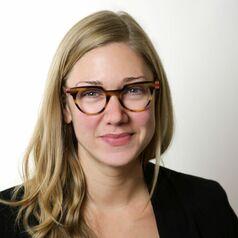
Elizabeth Bryan
Senior Scientist, Natural Resources and Resilience Unit, International Food Policy Research Institute (IFPRI)
Elizabeth Bryan is a Senior Scientist at the International Food Policy Research Institute, where she conducts policy-relevant research on gender, sustainable agricultural production, climate-smart agriculture, small-scale irrigation and natural resource management using mixed methods. She has considerable experience integrating gender into large, interdisciplinary research programs involving multiple CGIAR centers and other partners. Bryan is skilled at analyzing quantitative and qualitative data for gender research, has published numerous articles based on her work and regularly presents research results to diverse audiences, including at policy workshops, trainings and international conferences. She holds doctorate in Agricultural Sciences from the University of Hohenheim, an M.A. in Development Economics from American University, and a B.A. from Wagner College.
Less ![]()
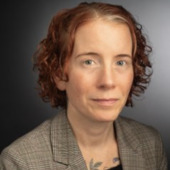
Elizabeth Call
University Archivist, RIT Libraries and Archives, Rochester Institute of Technology
Less ![]()

Elizabeth Carlen
Living Earth Collaborative Postdoctoral Fellow, Arts & Sciences at Washington University in St. Louis
I am a Living Earth Collaborative postdoctoral fellow at Washington University in St. Louis working with Dr. Jonathan Losos and a former National Science Foundation postdoctoral fellow. My postdoctoral research focuses on the impacts of urbanization and environmental racism in Eastern Gray Squirrels.
I received a PhD in Biological Sciences from Fordham University in New York City, where I worked in the Munshi-South lab. My PhD work, on how urbanization affected the evolution of feral pigeons in the Northeastern Megacity (Boston, MA to Washington, DC), was featured on Saturday Night Live and led The New York Times to refer to me as the “Pigeon Stalker”. In addition to my dissertation research, I am a co-founder and editor of the urban evolution blog Life in the City: Evolution in an Urbanizing World.
Less ![]()

Elizabeth Castaldo Lundén
Fulbright Scholar and Sweden-America Foundation Research Fellow, University of Southern California
Elizabeth Castaldo Lundén is a Fulbright Scholar and an Anders Zorn Sweden-America Foundation Research Fellow at the School of Cinematic Arts of the University of Southern California. She holds a doctoral degree in Fashion Studies from Stockholm University, a master of arts in cinema studies from the same institution, and a bachelor of science in public relations from U.A.D.E.
She is the receipent of the Rettig Prize 2024, granted by the Royal Swedish Academy of Letters, History and Antiquities for her research on the fashion industry and the working functions of the film medium, social analysis in relation to fashion, film and television. According to the institution's press release, "Elizabeth Castaldo Lundén's research, in its wealth of perspective and power, is fundamental to the subject's identity and has given perspective on the possibilities of fashion studies." (Vitterhetsakademin 2024)
Her research explores the media dimensions of the historical liaisons between Hollywood and the fashion industry. She is particularly interested in studying how Hollywood's intermedial reach helped propel the international fashion system through the global circulation of cultural and economic capital.
Castaldo Lundén departs from the study of discourses originating in public relations, advertising, marketing, and other institutional practices to understand how ideas travel into popular culture and manifest in social and cultural phenomena. Her work contributes to the pool of knowledge about the United States's rise to power in the global arena by circulating popular culture to propel consumer culture during the 20th Century. Her research is heavily driven by archival sources and integrates fashion, cinema, and media history.
Her latest book, Fashion on the Red Carpet: A History of the Oscars, Fashion, and Globalisation, historicizes the Academy Awards' red-carpet phenomenon, tracing the liaison between Hollywood and fashion institutions to explain how public relations campaigns and the media articulated fashion discourses around the Oscars leading to the institutionalization of the red-carpet as a global fashion media event. She is currently writing a book about the history of fashion in newsreels.
Less ![]()
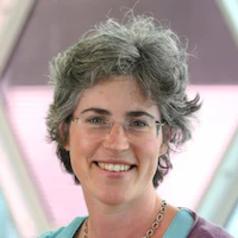
Elizabeth Chadwick
Senior Lecturer at the School of Biosciences, Cardiff University
My research focuses on freshwater aquatic systems, particularly the Eurasian otter and British amphibians. I head the Cardiff University Otter Project (CUOP), a research and monitoring project run collaboratively with the Environment Agency. Using the otter as a model species, we address fundamental questions about freshwater systems and population biology. For example, molecular genetic analysis is used to explore the influence of landscape on population connectivity, and to allow epidemiological modelling of recently introduced biliary parasites; stable isotope analysis is applied to investigate nutrient cycling, and volatile analysis of gland material is used to investigate scent communication. Research in amphibian ecology focuses particularly on phenology and climate change, and the effect of environmental cues on behaviour.
Less ![]()
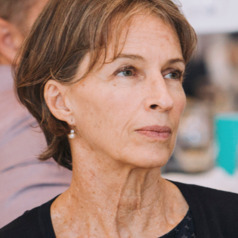
Elizabeth Crawford Spencer
Elizabeth Spencer, BS, MCRP, JD, PhD, is a lawyer and urban and regional planner. Having served in academic and managerial positions at Southern Methodist, Bond, Australian Catholic, James Cook and Charles Darwin Universities, she currently serves as Professor of Law with Charles Darwin University and Adjunct Professor with James Cook University. She has taught across the law curriculum; her subject areas include contracts; torts; corporations; business law; international trade law; Australian legal system; legal research, writing and analysis; competition law; and commercial regulation. A member of the Texas State Bar since 1997, Liz practiced law in the United States before moving to The Netherlands, where she worked as a managing editor for Kluwer Law International and at the International Court of Justice. Liz has professional experience in the private and not-for-profit sectors in Australia, the US, Europe and SE Asia. She also has formal training and experience in facilitation, negotiation and mediation.
Less ![]()
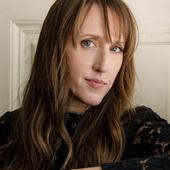
Elizabeth Currid-Halkett
James Irvine Chair in Urban and Regional Planning and Professor of Public Policy, University of Southern California
Less ![]()
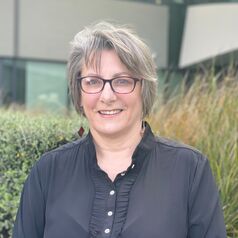
Elizabeth Dennett
Associate Professor in Surgery, University of Otago
In addition to my clinical practice, I am involved in research into disparities in cancer outcomes, patient experiences of their cancer journey and identification of novel biomarkers to improve treatment and prognostication for colorectal cancer.
Less ![]()
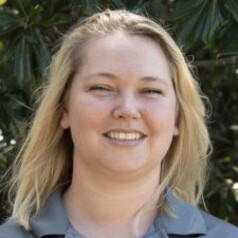
Elizabeth Eckelkamp
Associate Professor of Animal Science and Dairy Extension Specialist, University of Tennessee
Liz Eckelkamp is an expert in dairy management and works with farmers to maximize dairy efficiency through precision technologies and animal health. She is the director of the Center for Dairy Advancement and Sustainability, which helps local producers with the tools to survive economically.
Less ![]()
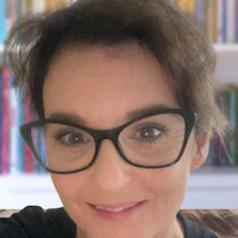
Elizabeth Englezos
Lecturer, Griffith Law School, Griffith University
I am a Lecturer at the Griffith Law School at Griffith University on the Gold Coast. My research focuses on the interplay between data, privacy, algorithms and identity. In otherwords, how #hyperconnection, and all things digital, influence the individual's identity, reputation and undermine personal autonomy.
Less ![]()
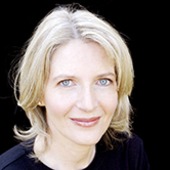

Elizabeth Fitting
Professor, Department of Sociology and Social Anthropology, Dalhousie University
Dr. Fitting is a social anthropologist who researches labour migration and the political economy of food.
Less ![]()
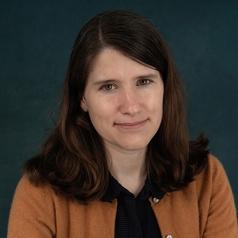


Elizabeth Hadly
Professor of Earth System Science, and Paul S. and Billie Achilles Chair of Environmental Science, Stanford University
Professor Hadly uses a combined field and laboratory approach to examine how ecological perturbations link or decouple levels of biological organization, because understanding the links among ecosystems, species, populations and genes is central to understanding how organisms exist, evolve and become extinct. She addresses problems in organismal biology from both evolutionary and ecological perspectives, primarily using extant species. One of the unique aspects of her overall approach is the focus on the decadal to millennial time scale, a scale that is little studied, although it is a scale that is integral to understanding links between ecology and evolution, and increasingly important to understand the impacts of the Anthropocene.
Less ![]()

Elizabeth Handsley
Adjunct Professor of Law, Western Sydney University
I am a legal academic specialising in children's rights and media law. I am also the President of Children and Media Australia (www.childrenandmedia.org.au), and the co-host of Outside the Screen, a podcast all about screens in the lives of children and families (https://outsidethescreen.substack.com/podcast).
Less ![]()
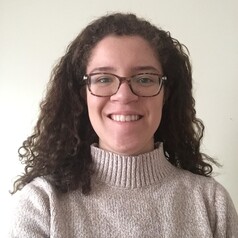
Elizabeth Hinds-Hueglin
Research Associate in English and Writing Studies, Western University
Masters thesis: Heritage landscapes in Kingston, Ontario: An erasure of African Canadian history
A Research Associate in the Department of English and Writing Studies at Western University. A Queen's University graduate with a Master of Arts degree, Bachelor of Arts (Honours) degree and Bachelor of Education degree. Possesses extensive knowledge in human geography, public memory, critical race theory and inclusive education strategies. Engages with the conceptual and theoretical perspectives in the sub-discipline of black geographies.
Less ![]()
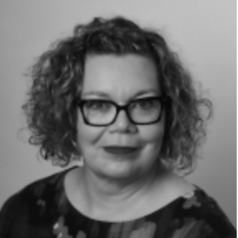
Elizabeth Kealy-Morris
Senior Lecturer in Dress and Belonging, Manchester Fashion Institute, Manchester Metropolitan University
I am a senior lecturer in Dress and Belonging at Manchester Fashion Institute. Originally from the States, I worked in printing and publishing in NYC before settling in Manchester, UK. I lecture across fashion studies subjects including critical theory, brand development, marketing principals, and graphic communication practice for fashion. I am associate editor of the journal Fashion, Style and Popular Culture, an imprint of Intellect Books.
My research is multidisciplinary in nature. I seek connections between cultural memory, autoethnography, human geography, dress, identity, disability, belonging and wellness. I co-organised and co-led the January 2021 international symposium Face Off: The Provocation and Possibilities of Masks and Head Coverings which emerged from my interest in how society changed and adapted through the wearing of the COVID face masks during the pandemic. My paper for the conference, ‘Who is the Sick One Here: Mask Refusal and Ambivalent Social Identity in COVID America’, explored the links between American cultural memory of ‘The Frontier’ and the cultural trope of ‘Pioneer Spirit’ in the visceral rejection of the COVID medical mask as a symbol of fragility and sickness. This will soon be published as a chapter in an edited Intellect Books volume. I am guest editor of the Fashion, Style and Popular Culture Special Issue, 'Dressing through Pandemics'.
I co-edited the Bloomsbury volume Memories of Dress: Recollections of Material Identities (2023). Her solo chapter, 'The American Look: Memories of Not Fitting In', introduced the term ‘body dressing work’ to articulate my experience negotiating the social norms and expectations of clothing the suburban American female body with the anxiety of living with a spinal deformity and was highlighted in The Guardian (2022).
I have developed the concept of 'cultural memory of dress' where national popular history and popular culture are woven as narratives into clothing tastes and styles. This is explored in my Bloomsbury solo chapter (above) and the publications “The American Look”: The transformation of women’s sportswear in 1930s and 1940s America’ (2023) and 'The Shift Dress as Cultural Meaning' (2018).
I am also interested in the ways in which collaborative learning enhances students' creativity, self-confidence, and sense of self. My practice-based doctorate, The Artist’s Book: Making as embodied knowledge of practice and the self, considered the role of creativity and the pedagogy of making in the development of identity via working through personal and cultural memory with visual practice.
Since 2020 I have collaborated yearly with colleagues from Pearl Academy in Delhi and Mumbai to develop 'The Global Artisan Project', a collaborative online international learning (COIL) project. This co-creative project connects undergraduate fashion students in the UK and India with Indian artisans and their underrepresented brands. My Pearl Academy colleagues and I presented a paper introducing this project at the Future of International Fashion and Design Education hosted by Istituto Marangoni in 2022 which will soon be published as a chapter in a Routledge edited volume.
I am also an artist bookmaker. Her handbound artist's books have been exhibited in the UK, Ireland, Germany, and the United States.
Qualifications
PhD (2017): The Artist's Book: Making as emodied knowlege of creativity and the self (2017), University of Chester (practice-based, pass with no corrections)
MA: Visual Culture (2008), MIRIAD, Manchester Metropolitan University (Distinction)
Postgraduate Certificate of Eduation (2004): Higher, Further & Adult Education
BA (Hons) Graphic Design (2003): Manchester Metropolitan University (First Class Honours)
Recognitions
Fellow of the Royal Society of Art (FRSA)
Higher Education Academy: Senior Fellow (SFHEA)
Previous Employment
2018-2019 Senior Lecturer, Academic Professional Development, University Teaching Academy, MMU
2017-2018 Staffordshire University, Head of Department of Art & Design
2013-2017: Senior Teaching Fellow, Faculty of Arts and Media, University of Chester
2009-2017 University of Chester, Programme Leader of Fashion Marketing and Communication, Senior Lecturer Graphic Design, MA Design, MA Fine Art and Senior University Teaching Fellow.
Less ![]()
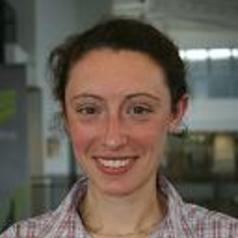
Elizabeth Kendon
Professor of Climate Science, University of Bristol
Lizzie is a Met Office Science Fellow and Professor of Climate Science at the University of Bristol Cabot Institute for the Environment. She is a climate scientist working on extreme rainfall processes and their evaluation in models across space and time scales.
Lizzie's work aims to gain a better understanding of extreme rainfall processes, and model deficiencies in the representation of these, across space and time scales. Her work links up Met Office expertise in forecasting extreme events on weather and climate change timescales, and exploits the seamless nature of the Unified Model
A key aspect of her work is developing and running very high resolution (1.5 km) climate simulations for a limited area of the UK. The simulation of extreme rainfall in the 1.5 km model is being analysed and compared with lower resolution model versions. In particular, she is exploring process-links between the large-scale atmospheric circulation and extreme rainfall across model resolution.
Work at the Met Office has shown significant improvements in the representation of extreme rainfall at cloud-permitting scales, with better representation of the diurnal cycle and of internal cloud dynamics (essential for capturing the development and persistence of convective events such as Boscastle in 2004). This suggests the importance of using very high resolution models in climate change studies, in particular for the estimation of changes in convective summer storms and thus flash floods.
New understanding from this work will be applied in the context of developing and improving our climate models, as well as providing guidance to the government on the reliability of future projections of extreme precipitation change.
Less ![]()
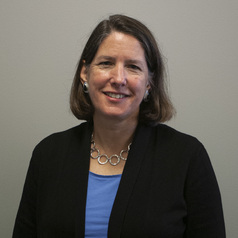
Elizabeth Kryder-Reid
Chancellor's Professor of Anthropology and Museum Studies, Indiana University
Dr. Elizabeth Kryder-Reid is Chancellor’s Professor of Anthropology and Museum Studies at Indiana University, Indianapolis, Director of the Cultural Heritage Research Center and Director of the IUPUI Museum Studies Program. Her multidisciplinary research explores the intersections of landscape, power, and memory and investigates how materiality is deployed in the contestation of social inequalities across gender, race, class, ethnicity, and religion. She has disseminated this research peer-reviewed publications, exhibits, and digital history. Her research has focused on landscape history and the production of public memory in the Chesapeake, the Midwest, and the California missions (California Mission Landscapes: Race, Memory, and the Politics of Heritage, U. Minn. Press 2016). Her current research investigates toxic heritage and the ways in which places of environmental harm are mobilized and marginalized in formal and informal memory practices. As part of this research, she has investigated post-industrial sites in the US and UK and was a Fulbright Scholar in France in 2022 studying the toxic heritage of WWI. She is the co-editor with Sarah May of Toxic Heritage: Legacies, Futures, and Environmental Justice (Available open access from Routledge, July 2023).
Less ![]()
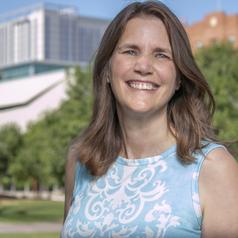
Elizabeth Lightfoot
Distinguished Professor of Social Policy, School of Social Work, Arizona State University
Elizabeth Lightfoot is Director and Distinguished Professor of Social Policy at the Arizona State University School of Social Work, the largest school of social work in a research university in the United States. Lightfoot’s research centers on disability policy and services, with a focus on the intersections of disability with child welfare, aging, disparities, and abuse. She has conducted numerous projects investigating the interactions of parents and children with disabilities in the child welfare system and her research findings have been used as evidence the creation of national policies involving disability.
Before coming to ASU, she was the Global Distinguished Professor at the University of Minnesota School of Social Work for 23 years. At Minnesota she directed the PhD Program for 15 years, developed new MSW tracks in community practice, international social work, and health, disability and aging, and established an MSW field placement in Namibia. She also has been a Fulbright Scholar for sabbatical years in both Namibia and Romania.
She is a member of the American Academy of Social Work and Social Welfare, has received the Group for the Advancement of Doctoral Education’s Educational Leadership award, and has received university and college wide awards for international engagement, educational leadership, and teaching. She has served as the President of the Group for the Advancement of Doctoral Education in Social Work and has been on the board of both the Society for Social Work and Research, the Council of Social Work Education, and the American Academy of Social Work and Social Welfare.
She enjoys teaching doctoral classes in research methods and social policy and MSW courses in disability, policy and macro practice, she has advised 25 PhD students, and she has mentored students and faculty around the world. She consults often with PhD programs in the United States and around the world on establishing and improving social work doctoral education.
Less ![]()
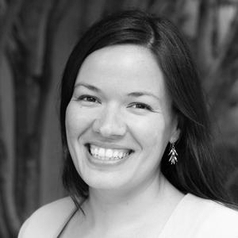
Elizabeth Linos
Associate Professor of Public Policy and Management, Harvard Kennedy School
Elizabeth Linos is the Emma Bloomberg Associate Professor for Public Policy and Management, and Faculty Director of The People Lab at the Harvard Kennedy School of Government. The majority of her research focuses on how to improve government by focusing on its people and the services they deliver. Specifically, she uses insights from behavioral science and evidence from public management to consider how to recruit, retain, and support the government workforce, how to reduce administrative burdens that low-income households face when they interact with their government, and how to better integrate evidence-based policymaking into government.
Her research has been published in various academic journals including The Journal for Public Administration Research and Theory, Public Administration Review, Econometrica, American Economic Journal: Economic Policy, Behavioural Public Policy, and others. Her work has also been highlighted in media outlets including The New York Times, The Economist, BBC, NPR, Slate, and the Harvard Business Review. As the former VP and Head of Research and Evaluation at the Behavioral Insights Team in North America, she worked with government agencies in the U.S. and the U.K. to improve programs using behavioral science and to build capacity around rigorous evaluation. Prior to this role, Linos worked directly in government as a policy advisor to the Greek Prime Minister, George Papandreou, focusing on social innovation and public sector reform.
Less ![]()
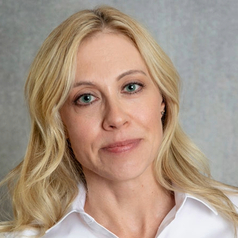
Elizabeth Mack
Professor of Geography, Michigan State University
Elizabeth Mack is a Professor in the Department of Geography, the Environment, and Spatial Sciences at Michigan State University where she teaches courses in economic geography. Dr. Mack’s research utilizes mixed methods to understand the evolution of the economy in the face of rapid technological change and climate change. Research on technological change evaluates the impact of information and communications technologies (ICTs) on the development trajectory of regional economies and everyday work. Her work on the environment and climate change evaluates household responses to changing environmental contexts, as well as uses and the ability to pay for water services. Dr. Mack’s research has been funded by a variety of agencies including the National Science Foundation (NSF), the United States Department of Agriculture (USDA), the National Aeronautics and Space Administration (NASA) and the Kauffman Foundation for entrepreneurship research.
Less ![]()
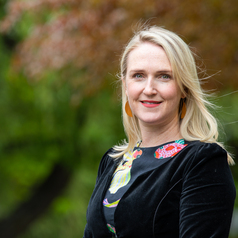
Elizabeth Macpherson
Associate Professor of Law, University of Canterbury
Dr Elizabeth Macpherson is Pākehā (a New Zealander of European-settler descent) and is an Associate Professor at Te Kaupeka Ture (Faculty of Law) at the University of Canterbury. Her research interests are in comparative environmental and natural resources law, human rights and Indigenous rights in Australasia and Latin America. She is the author of the award-winning book Indigenous Water Rights in Law and Regulation: Lessons from Comparative Experience (2019, Cambridge University Press).
Less ![]()
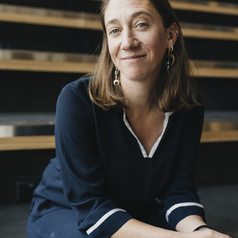
Elizabeth Marino
Associate Professor of Anthropology, Oregon State University
Elizabeth Marino is the Associate Dean of Academic Affairs and an Associate Professor of Anthropology and Sustainability at Oregon State University - Cascades. She is interested in the relationships among climate change, vulnerability, slow and rapid onset disasters, human migration, and sense of place. Her research focuses on how historically and socially constructed vulnerabilities interact with climate change and disasters – including disaster policy, biophysical outcomes of disasters and climate change, and disaster discourses. She is also interested in how people make sense and meaning out of changing environmental and social conditions; and how people interpret risk. Elizabeth was the lead author on the Social Systems and Justice chapter in the Fifth National Climate Assessment.
Less ![]()
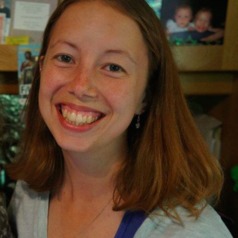
Elizabeth Martin-Silverstone
Research Assistant in Palaeontology, University of Bristol
Liz is currently a research assistant at the University of Bristol, and recently completed her PhD on pterosaur palaeobiology at the University of Southampton. She started out at the University of Alberta, Canada, with a Palaeontology Honours BSc degree, and then moved to the University of Bristol to complete a Master's in Palaeobiology.
She works primarily on pterosaurs and is interested in using modern imaging techniques such as computed tomography to study their bones and better understand the internal structure. For her PhD, Liz looked to use these data to reconstruct pterosaur skeletons and better understand the distribution of mass in the body since there are no modern analogues or descendants of this group. She's also interested in general biomechanics and evolution of flight in vertebrates. Currently, she is working on understanding the function and skeletal formation in osteoarthritis in zebrafish.
Less ![]()
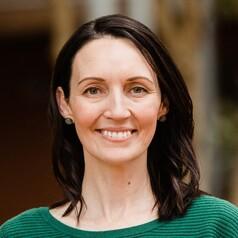
Elizabeth Murray
Senior Lecturer, Education, School of Education, Charles Sturt University
Dr Elizabeth Murray is Senior Lecturer an Academic Program Lead in the School of Education. She is Lead Researcher for Positive Living Skills Australia, Co-Lead of Charles Sturt University's Wellbeing and Mental Health Research Group, and Co-Lead of Charles Sturt University's Early Childhood Interdisciplinary Research Group. Dr Murray is also Academic Program Lead for two large projects: The Grow Your Own Teacher Training program, and the Collaborative Teacher's Aide Pathway program.
Less ![]()

Elizabeth Renner
Lecturer of Psychology, Northumbria University, Newcastle
I completed my PhD at the George Washington University on the topic of social learning (how children, adults, and great apes learn on their own and from others). I am now a lecturer in the Psychology Department at Northumbria University. I am interested in how individuals of different species learn and behave.
Less ![]()
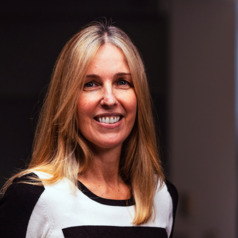
Elizabeth Rieger
Associate Director Education (Psychology), School of Medicine & Psychology, Australian National University
I have now been a practicing Clinical Psychologist for 25 years, having undertaken my clinical training at the University of Sydney.
My main clinical experience has included treating adults with eating disorders, medical patients with accompanying psychological problems, and children and adults with obesity, working in public and private hospitals, university clinics, and private practice. I have also been involved in teaching clinical skills to diverse populations including clinical psychologists and intern clinical psychologists, general practitioners, nurses, and medical students.
In 2001, I completed my PhD, the focus of which was on developing an instrument to assess motivation to change in anorexia nervosa (the Anorexia Nervosa Stages of Change Questionnaire). From 2001-2, I completed a post-doctoral fellowship at the Centre for Eating and Weight Disorders (University of California, San Diego and San Diego State University) where I was trained in interpersonal psychotherapy and undertook an NIH-funded randomised controlled trial for children and adults with obesity. I commenced my academic role as a Lecturer in the School of Psychology at the University of Sydney in 2003 and Senior Lecturer in 2008 before commencing as a Senior Lecturer in the Department of Psychology at the Australian National University in 2009 and Associate Professor in 2012.
I continue to specialise in eating disorders and obesity in my research and clinical work. I am a member of the Eating Disorders Research Society, the Australia and New Zealand Academy for Eating Disorders, the College of Clinical Psychologists of the Australian Psychological Society, and the Australian Clinical Psychology Association.
Less ![]()
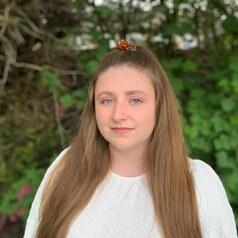
Elizabeth Simon
Postdoctoral Researcher in British Politics, Queen Mary University of London
Elizabeth is a Postdoctoral Researcher in British Politics, based in the Mile End Institute and QMUL's School of Politics and International Relations. She has recently completed her PhD at the University of Southampton.
Elizabeth's research explores how education attainment - and a range of other life experiences and socio-demographic characteristics - shape public opinion, electoral behaviour, and wider society, in modern Britain. Her research interests extend broadly across the topic of political behaviour and she is currently working on a number of projects that relate to issues of identity formation and inequality.
Her research has been cited in the Financial Times, The Guardian, as well as the Times Higher Education Supplement.
Less ![]()

Elizabeth Smyth
Research Associate, James Cook University
Elizabeth Smyth is a writer and researcher with a focus on literary representation and experience of place. Her creative-practice research engages with regionalism, ecocriticism, and the georgic to respond to contemporary social and environmental issues and concerns. She writes both long and short forms of narrative prose set in the Australian Wet Tropics.
Less ![]()
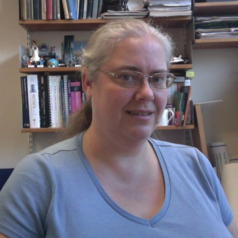
Elizabeth Stanway
Reader in Astronomy and Astrophysics, University of Warwick
I am a Reader in the Astronomy and Astrophysics group at the University of Warwick with a specific interest in the study of stellar populations and their role in observational cosmology, both at optical and radio wavelengths. The question of how the universe evolved, from the birth of the first stars to the highly structured and massive galaxies we see around us today, is one of the most fundamental that astrophysicists seek to address. It underpins our understanding of nearby galaxies, and is a key driver for the development of the next generation of telescopes. By modelling the stars that combine to produce the light we see from unresolved galaxies I work to improve our understanding of distant systems.
I also publish on the role of science fiction in popular understanding of science, and on the history of astronomy. I post articles on the mutual influence between science and science fiction twice monthly on my Cosmic Stories blog, which can be found at www.warwick.ac.uk/cosmicstories.
Less ![]()
- Market Data





















